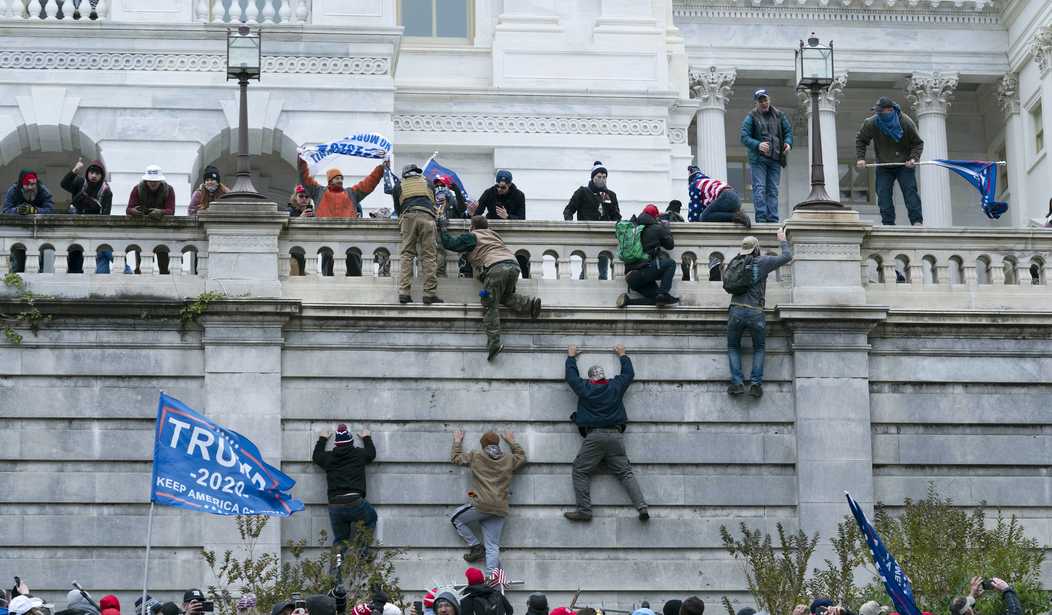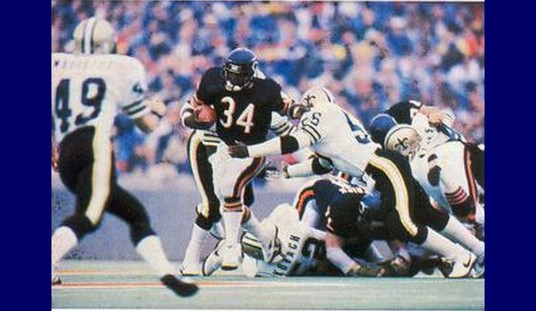Late on Wednesday, United States District Court Judge Beryl Howell granted “conditions of pretrial release” to Ethan Nordean, identified as the leader of the Proud Boys group involved in the protests at the Capitol on January 6.
Nordean was arrested pursuant to a “criminal complaint” signed by a federal judge in Washington D.C., based on an affidavit by a federal agent describing the facts which established “probable cause” that Nordean had committed one or more federal criminal violations while at the Capitol on January 6. The description is contained in a sworn affidavit by the agent.
An arrest warrant is generated along with the criminal complaint, ordering that Nordean be arrested and taken before the nearest federal magistrate without undue delay to make his “initial appearance”. The purpose of an initial appearance is threefold: 1) to advise Nordean of the existence and nature of the allegations that have been made against him (he is not yet charged with a crime); 2) to ensure that he has the assistance of counsel, either of his own choosing or by the court appointing one to assist him; and 3) to determine whether, if Nordean were to be released from custody during the pendency of the matter, he would present a “risk of flight” or “danger to the community.” If the answer to No.3 is yes, the Court must consider whether there are conditions or a combination of conditions that would eliminate his risk of flight or dangerousness to the community such that he could be released. In addressing No. 3, the Court has the assistance of Pretrial Services to conduct an investigation and make a recommendation on whether the defendant can be safely released — and on what conditions — while the case remains pending.
Nordean was arrested at his home in Washington State on February 3, 2021. The criminal complaint was signed the previous day, so the government had 28 days after the protests on January 6 to put together the evidence implicating Nordean.
He made his initial appearance before a Magistrate Judge later the same day, and a detention hearing was scheduled for February 8.
Ahead of that hearing, the government filed a very unpersuasive 21-page memorandum in favor of detaining Nordean in custody pending trial. The memorandum goes through many of the events of January 6 — as well as days just before and just after January 6 — repeating the allegations that Nordean is a leader of the Proud Boys organization. But the memorandum presented very little evidence about what Nordean had actually done himself that made him guilty of the offenses alleged in the criminal complaint. Nordean was in the crowd, but he wasn’t among the first to enter the Capitol, he wasn’t among those who are argued to have overwhelmed the security forces, and there is no evidence that he destroyed any government property. Basically, he was there and he posted some comments on social media — which are themselves pretty benign on the “spectrum” of incendiary comments.
At the “detention hearing,” the Magistrate Judge found that there were conditions or a combination of conditions that mitigated the “risk of flight” and “danger to the community”, and ordered that Nordean be released subject to his compliance with those conditions. He was ordered to travel at his own expense to Washington DC, and to appear on a date and time to be specified if he was indicted.
Because Nordean was charged in Washington DC, the Federal Rules of Criminal Procedure provide that the government can appeal such a release order to a District Court Judge — a Judge “superior” to a Magistrate Judge — in the District Court where the charges are pending and that Judge can stay the release order of a magistrate in another district, and conduct a new detention hearing in the District Court where the charges are pending.
After the magistrate in Washington State ordered Nordean released, the government filed such an appeal in the District of Columbia, and Presiding Judge Howell granted a stay pending a hearing before her on whether Nordean could be released pending trial. The appeal filed with Judge Howell repeated most of the same arguments as had been made by the government to the Magistrate Judge in Seattle.
At that point, the government had presented Judge Howell with two versions of the facts that it claimed it would be able to present to a jury at trial — the original factual affidavit from the federal agent that was the justification for the criminal complaint and arrest warrant, and the facts as set forth in the written appeal of the magistrate’s order in Washington State releasing Nordean.
Yesterday Judge Howell agreed with the earlier decision of the Magistrate and ordered Nordean released from custody pending the outcome of the case. During the hearing she made some interesting comments with respect to the presentation of information by the government to the Court:
Before ruling, Howell noted that the evidence clearly shows Nordean was heavily involved in organizing the Proud Boys on Jan. 6.
But, “there’s no allegation that the defendant caused injury to any person or that he personally caused damage to any property,” the judge said. “This is unlike other cases I’ve seen where people have actually done damage inside the Capitol, and the government has not sought pre-trial detention.”
Though she called evidence of Nordean’s alleged role troubling, Howell ruled the government had “not met its burden by clear and convincing evidence that the defendant poses a danger to the community, or by a preponderance that he will flee” before trial.
Nordean’s counsel had argued to the Court that the only evidence the government offered was that Nordean had marched with a group towards the Capitol, and then claimed he had “aided and abetted” the violent actions of others in the group — while doing nothing in that regard himself.
Having read the government’s submissions to the Court — and having spent more than 30 years prosecuting and defendant criminal cases in federal court — I’d call the argument by Nordean’s attorney pretty much 100% accurate.














Join the conversation as a VIP Member